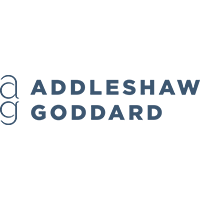
Directeur général juridique, conformité | Nestlé France


Béranger Pène
Directeur général juridique, conformité | Nestlé France
Team size: 850
What are the most significant cases or transactions that your legal team has recently been involved in?
Some of the most significant cases this year have included: The delisting of Natixis and transfer of insurance and payment activities to BPCE; several high-profile litigations with respect to former subsidiary H2O; financing for $1.5bn sustainability-linked revolving credit facility for Invenergy Renewables Operating; financing for US$364m portfolio of PV projects in Chile and more generally, as general counsel, I am in charge of engaging with all our regulators and supervisors worldwide.
Looking forward, what technological advancements do you feel will impact the role of in-house legal teams in the future the most? Which have you found most useful in your legal team?
We have invested very early on in digital technology in our legal work. Data management and artificial intelligence will have a significant impact on in-house legal teams and their ability to best serve and protect the business at the most efficient cost in the future, thereby ensuring that the products we offer are competitive on the market. Our approach has been a test and learn approach.
One challenge that we were facing was to figure out the way to best manage our contracts. We launched a project called ‘Legal Datalake’ to develop a global structured archiving tool for legal documentation, including data analysis functions and the ability to search through tools and technologies to retrieve, view and use data from legal documentation. This project consisted of structuring legal documentation to generate many different use cases and was rolled-out to all of our legal operations worldwide. The ‘Legal Datalake’ allows us to retrieve all the contracts containing a clause to be amended. It has saved some significant time for our lawyers and paralegals that did not have to go through all of our contracts to check whether they qualified for the change or not. This has proven extremely useful for indices, bail-in clauses, applicable law clauses and for regulatory changes stemming from Brexit. It allows us to facilitate and secure the results of massive undertaking reviews, provides a firm-wide offering to access document content on the basis of the global IT solution and develop additional use cases both for lawyers, other support functions and has tremendously improved how the legal team works.
With the constant development of artificial intelligence and, in particular, generative AI, we are now going one step further. It is not only about data and the challenge to structure data to identify relevant data for a use-case. Generative AI allows us to generate the replacement clause. We are now focusing on two use cases concerning (i) knowledge management by taking complex legal concepts and clarifying them in easy-to-understand text and (ii) content generation on the database (generating document and clause templates, obtaining a holistic view of commitments, or identifying atypical clauses).
How do you see the general counsel role evolving in France over the next five-ten years?
The general counsel role is necessarily evolving to expand beyond legal work to many other types of risks and, in particular, regulatory and reputational risks. As regulations are increasing in number and complexity, general counsel are very well equipped to ensure regulatory compliance and participate in building a robust risk framework for their institution. Many general counsel are also in charge of compliance and team up with the chief risk officer in ensuring an effective and sustainable risk management framework. General counsel are also very well equipped to oversee regulatory relations and public affairs. They can have a holistic view of the whole regulatory chain and cycle: (i) contributing to the industry’s position on proposed regulations, (ii) making sure their firm best implements the regulations early on when they come into force, (iii) monitoring compliance thereafter through a robust control framework, and (iv) handling any breach or enforcement actions, which in turns feeds the positions that the firm takes from a public affairs standpoint. It allows us to face the challenges of a changing regulatory landscape, such as in financial services.
Last but not least, I believe general counsel have an important role to play in contributing to defining and implementing the ESG and sustainability strategy. ESG risks are very diverse and reputational in nature, and relate often to regulation or internal procedures and policies. In addition, some regulations like the duty of care and related litigations are handled by the legal teams. In these circumstances, general counsel have a prime role to play in the ESG strategy of their organisations, both from a business and a corporate social responsibility point of view. At Natixis, the general counsel’s scope covers legal, compliance, sustainability, regulatory affairs, and governance. This perimeter encourages a lot of synergies and interactions between the different teams and best positions the firm to handle its regulatory, legal, and reputational risks and challenges.
Directeur général juridique, conformité | Nestlé France
Directeur général juridique, conformité | Nestlé France
General counsel | Nestlé
Béranger Pène is the general counsel at Nestrade, Nestlé Group’s global procurement arm. Alongside a team of 15 legal professionals based in four locations worldwide – Switzerland, Kuala Lumpur, Panama,...